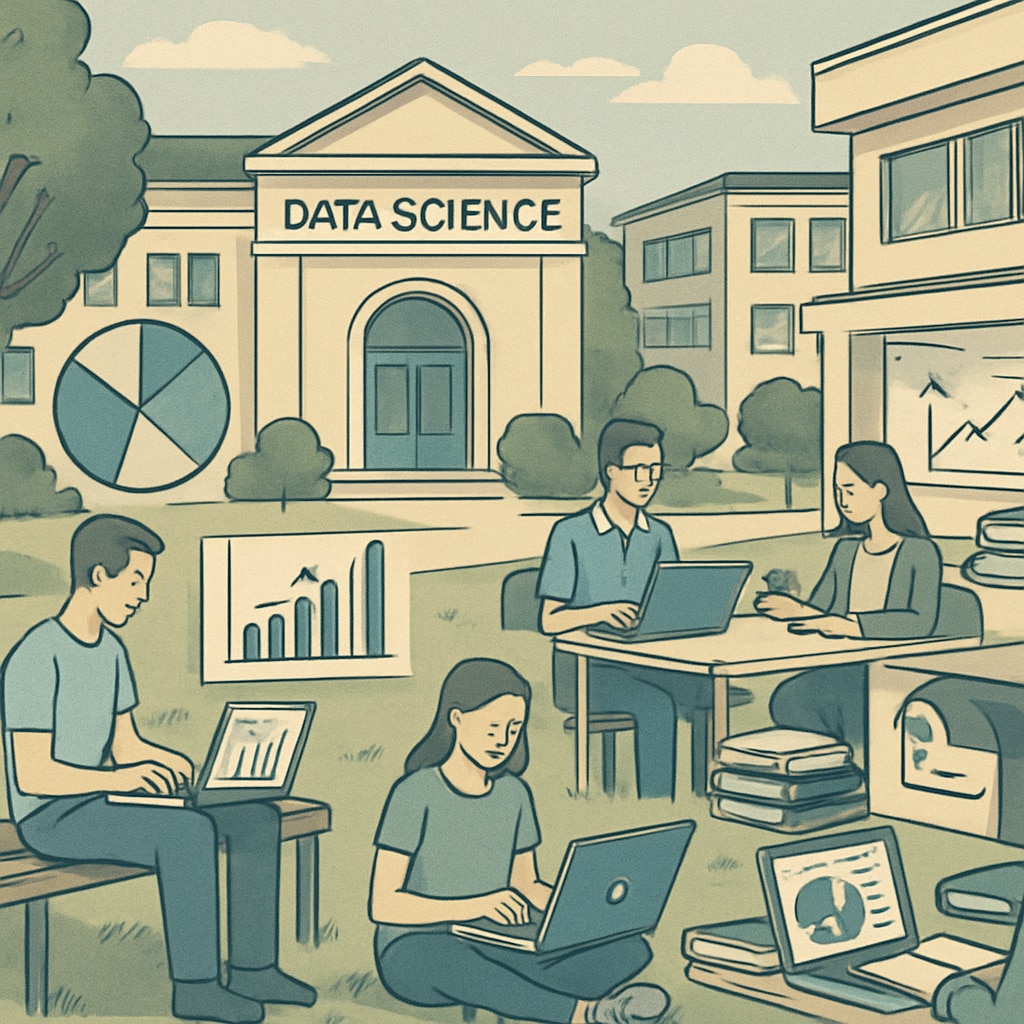Data science has emerged as one of the most sought-after fields in modern education, drawing international students to pursue their academic dreams in leading U.S. universities. For prospective students aiming to join data science programs, understanding the application requirements, including IGCSE recognition, standardized test scores, and program-specific prerequisites, is critical to ensure a successful application process.
Understanding Admission Requirements for Data Science Programs
When applying to U.S. universities for data science programs, there are several key admission requirements to consider. These include academic qualifications, proof of English proficiency, and standardized test scores. Let’s break down the essentials:
- Academic Qualifications: Most universities require international students to demonstrate strong academic backgrounds. For students who have completed IGCSE (International General Certificate of Secondary Education), it is generally recognized by U.S. institutions as part of the required academic qualifications. However, students may need additional A-level certifications or equivalent credentials to meet specific program standards.
- English Proficiency: As English is the primary language of instruction, international students must provide proof of proficiency through standardized tests such as TOEFL (Test of English as a Foreign Language) or IELTS (International English Language Testing System).
- Standardized Tests: Many universities require SAT (Scholastic Assessment Test) or ACT (American College Testing) scores for undergraduate program admissions. While some schools may adopt test-optional policies, competitive programs like data science often prefer students with strong test scores in math and analytical subjects.

Top Data Science Undergraduate Programs in the U.S.
For students keen on specializing in data science, several U.S. universities offer exceptional undergraduate programs. Here are a few noteworthy institutions:
- Massachusetts Institute of Technology (MIT): A leader in technology and innovation, MIT’s data science curriculum integrates computer science, statistics, and applied mathematics to address real-world challenges.
- Stanford University: Known for its robust computer science department, Stanford’s data science program emphasizes interdisciplinary applications in areas like AI and machine learning.
- University of California, Berkeley: UC Berkeley offers a cutting-edge data science major with a focus on foundational data analysis and computational techniques.
- Carnegie Mellon University: Renowned for its emphasis on computational thinking, Carnegie Mellon’s data science program prepares students for careers in advanced analytics.

Step-by-Step Application Guide
Applying to U.S. universities as an international student can be daunting, but having a clear roadmap simplifies the process. Here’s a step-by-step guide to ensure your application stands out:
- Research Programs: Begin by identifying universities that offer strong data science programs suitable to your career aspirations.
- Check Eligibility: Review the admission requirements, including academic qualifications, test scores, and English proficiency standards.
- Prepare Documents: Gather transcripts, personal statements, recommendation letters, and evidence of extracurricular achievements.
- Submit Applications: Use platforms like the Common Application or university-specific portals to apply. Ensure all deadlines are met.
- Visa Application: After receiving admission offers, proceed with applying for a student visa (F-1 Visa) to study in the U.S.
In addition, make sure to allocate time for scholarship and financial aid applications, as many universities offer support for international students.
Why Choose the U.S. for Data Science Studies?
The U.S. has consistently been a top destination for higher education due to its world-class institutions, cutting-edge research opportunities, and diverse cultural environment. For data science students, studying in the U.S. offers distinct advantages:
- Exposure to industry leaders and internships with tech giants like Google and Microsoft.
- Access to state-of-the-art facilities and resources for data analytics and computational research.
- Opportunities to network with experts and peers in the technology and analytics domains.
- Flexible learning pathways, allowing students to explore interdisciplinary studies alongside data science.
As a result, international students gain both academic excellence and practical experience, making them highly competitive in global job markets.
Conclusion: Applying to data science programs in U.S. universities requires meticulous planning and preparation. By understanding admission requirements, researching top programs, and following a structured application process, international students can achieve their academic and career aspirations in this dynamic field. With global demand for skilled data scientists on the rise, pursuing education in the U.S. is a strategic investment in your future.


